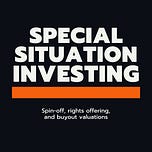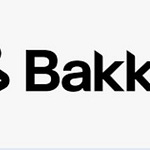Welcome to Episode 116 of Special Situation Investing.
Pilots comprise only two tenths of one percent of the American population.
It’s therefore likely most people’s view of pilots and piloting is crafted by cinema and is something between the glamor of Top Gun and the horror of Sully. I can tell you, it’s all of the above. Flying is hours of bliss interrupted by moments of sheer terror. It is also ripe with lessons for the rest of life.
In the spring of 2001, the famed investor, Anthony Deden, himself a pilot, gave a talk titled Fly The Airplane in which he highlighted similarities between piloting and investing. Deden wove this theme into a fascinating script of advice on how to avoid the fate experienced by so many in the recent Dot-com Crash. Early in the talk, he asked the question: “How can so many who are paid so much have blown it so spectacularly for their investor customers?” Deden believed the answer is a lack of humility and judgment—two traits business schools fail to teach.
The answer is the words humility and judgment.
His answer is worth internalizing and is as instructive today as it was twenty-three years ago.
Humility
Despite the ego pilots display in real life, and in Hollywood, at a deeper level there’s always at least a hint of humility. This is because they know flying is dangerous.
Every time a pilot straps on an aircraft a lot can go wrong, and fast. Any one of thousands of mechanical parts could fail causing a host of aircraft emergencies. Weather could shift unexpectedly, requiring an on-the-fly change of plans. Incorrect GPS coordinates could lead to flying to the wrong location. Failing to adjust for even a light wind could lead to flying off course or running out of fuel. Every flight defies physics, gravity and nature, and being alone in the clouds against those forces is sometimes very humbling.
Deden kicks off his talk with two stories that illustrate the investor’s need for humility. The first tells how the accidental discovery of Valium was leveraged by the Hoffmann La Roche company into other fruitful ventures. The second story highlights how the explosive growth of Xerox was squandered in misadventures. Deden follows up by say:
The history of business and money is replete with stories like these. It tells us that some luck and hard work often pay off. But business history also speaks loudly of the need to view the financial process with some humility. For unless you inherit it or win the lottery, creating great wealth is quite difficult and, keeping it, is substantially harder.
Regardless of what gurus say or what an individual investor might tell themselves, beating the market over the long term is difficult. In this pursuit, investors face a host of challenges on the daily.
On good days, investors need to resist over exuberance and ego. On bad days, the enemy is fear and despair. Investors must tune out the crowd and resist FOMO but also listen for the signal within the noise. Investors must resist the temptation to wander outside their circle of competence and simultaneously work hard to expand it. Investors need to decided when to act aggressively and when to sit on their hands. In the face of such an onslaught of internal and external forces, investors too should be humble.
But humility by itself isn’t enough. It must be reinforced with hard work, hard work that leads to good judgment.
Judgment
Humility correctly applied leads to the second characteristic—judgment. As Deden correctly asserts, judgment can’t be taught, it can only be learned. This is true for investors and pilots alike.
No matter how good a pilot may be at flying “by the seat of their pants” or “doing it live,” the best pilots know that sound judgment in the air is a result of work and preparation put in on the ground. Deden says:
Before each take-off, no matter how many flawless take-offs and landings have taken place before, a pilot needs to know: 1) about himself - his limitations, levels of comfort and his skills relative to what is to be expected; 2) about his aircraft: the design limitations, the operating envelope, every system and every instrument; and finally, 3) everything there is to know or as much as he possibly can about his flight plan, the weather to be encountered, the terrain, the navigation problems, the airport he is to land to, and the regulations governing such flight.
The same can be said about investors. Deden explains:
So, now, if a pilot must deal with self, machine and the elements, what is our investor analogy? Well, it is exactly the same: 1) we must know ourselves, our limitations, our skills, our needs, our tolerance for risk, our needs for security, income, etc. 2) we must know as much as possible about every type of investment instrument in our reach and how they are related to each other, and 3) we must be aware of the weather, and our route…We must learn to recognize trends that may have an impact on our capital. We must be eager to listen and make a distinction between what is useful and meaningful and what is just noise.
But as it is in any area of life, the best laid plans can’t prepare one for everything. At those points, it’s imperative investors and pilots to revert back to the basics.
Just Fly the Airplane
Deden says, and it’s true:
A pilot learns, from the very beginning, that when things get really itchy, uncertain, difficult, or start going wrong, there is only one thing to do. He's been told this over and over: ‘Fly the airplane.’
If you read the reports on aircraft accidents, it’s painful to realize that most are caused by pilot error. There’s always other causal factors, but it is usually the failure of the pilot to properly fly the aircraft that is ultimately fatal. This is why the first step to all emergency procedures is to ‘maintain aircraft control.’ In times of chaos, unexpected challenges, or even extreme boredom, pilots are taught to refocus on what is basic and critically important. Focus on that and they can get through the rest. The same is true for investors.
Investors experience extreme swings of emotion. When things are going great and performance is though the roof, they can start to believe this should and will last and it’s all because of their own alpha. When things are going nowhere, and particularly when others who are experiencing great success, investors can convince themselves to change their style and chase what’s working for others. When everything is crashing, and the whole world appears to be ending, they may be tempted to run for the hills and hide.
No matter what the circumstances are, the best bet is to keep flying the airplane. In other words, to stay within one’s circle of competence and keep investing the way one knows best. Of course, make changes as growth and maturity occurs, but stick with the fundamentals and the rest will take care of itself.
Bonus: A few pilot sayings to keep investors from going inverted
Just for fun, here’s a few more sayings from the pilot community that can help guide investors.
“Stay within your comfort bubble.”
This one is super important and basically means don’t put your aircraft in a situation that you aren’t convinced you can get it out of. This has saved my life more than once while teaching younger pilots. The parallels to investing are along the lines of staying within one’s circle of competence.
“Trust your instruments”
This saying is generally used when flying IMC or “in the clouds.” There’s nothing quite like the feeling you get when you fly into a cloud and the entire windscreen becomes totally white with zero visibility. In this situation, your life depends on using, and trusting, your cockpit instruments. This is particularly critical because your body will play tricks on you and mess with your senses. At times your body will say the aircraft is in a turn, when the instruments clearly show the aircraft wings level, for example. In those cases its takes everything you've got to ignore your senses and trust your instruments.
The correlation to investing is to trust your process. When the market is screaming up or down and your mind is saying you are a genius or a failure, trust your process and stay the course.
“Stick to the checklist.”
Starting an aircraft is a complex process sometimes with hundreds of steps. But after repetition over years it can often be accomplished by memory. Even so, pilots are taught to read each step of every checklist and execute each in order every single time. This allows pilots to execute the starting sequence with accuracy and speed even in times of high stress.
Countless of the world’s top investor advocate some level of checklist following in the investing process. The idea is to reduce the likelihood of operating poorly in times of high stress. But don’t take my word for it, the late Charlie Munger, who was famous for recommending the use of checklists, said the following:
No wise pilot, no matter how great his talent and experience, fails to use his checklist.
And elsewhere he stated:
thinking by inversion and through use of checklists is easily learned—in broadscale life as well as in piloting.
Conclusion
There we have it—insights from piloting that apply to investing and life at large.
Given that the likes of Deden and Munger modeled much of their investing process after principles from the field of piloting, it’s probably worth some thought.
With that we’ve wrapped up the latest episode to Special Situation Investing. Thank you for reading and listening. Please share this piece with anyone you think will enjoy and benefit from it. We appreciate your continued support and look forward to seeing you again next week.
Content Worth Sharing
The Next 50 Years in In Western Florida with Jorge Gonzalez, CEO of The St. Joe Company












Share this post